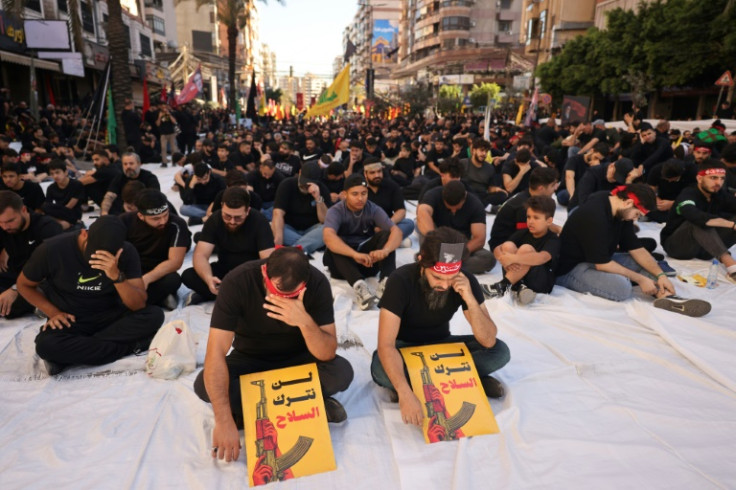US Envoy Says Satisfied With Lebanese Response On Disarming Of Hezbollah

US envoy Thomas Barrack said Monday he was satisfied by the Lebanese authorities' response to Washington's request to disarm Hezbollah, which was heavily weakened in a recent war with Israel.
Lebanese leaders who took office in the aftermath of the conflict have vowed a state monopoly on bearing arms, while demanding Israel comply with a November ceasefire that sought to end more than a year of hostilities with the Iran-backed group.
"I'm unbelievably satisfied with the response," Barrack, Washington's ambassador to Turkey and special envoy to Syria, told a press conference after meeting President Joseph Aoun.
"It's thoughtful, it's considered. We're creating a go-forward plan. To create that, we need dialogue. What the government gave us was something spectacular," he said.
"Now what it takes is a... thrust to the details, which we're going to do. We're both committed to get to the details and get a resolution," he said, adding: "I'm very, very hopeful."
The presidency said on X that Aoun handed Barrack "ideas for a comprehensive solution".
A Lebanese official told AFP that late last week, Beirut submitted an initial response to Washington, which then requested modifications.
Lebanese officials then worked through the weekend to develop the final version, the source added, requesting anonymity as they were not authorised to brief the media.
During a visit last month, Barrack asked Lebanese leaders to formally commit to fully disarming Hezbollah.
Hezbollah leader Naim Qassem said Sunday his group would not surrender or lay down its weapons in response to Israeli threats.
Israel's military has continued to occupy positions in Lebanon and to strike the country despite the ceasefire, saying it is targeting Hezbollah sites and operatives and accusing Beirut of not doing enough to disarm the group.
Barrack said that Hezbollah "needs to see that there's a future for them, that that road is not harnessed just solely against them, and that there's an intersection of peace and prosperity for them also."
He warned that "the rest of the region is moving at Mach speed, and you will be left behind", noting that "dialogue has started between Syria and Israel, just as the dialogue needs to be reinvented by Lebanon."
Under the ceasefire, Hezbollah was to pull its fighters back north of the Litani river, some 30 kilometres (20 miles) from the Israeli frontier.
Israel was to withdraw its troops from Lebanon, but has kept them deployed in five areas that it deemed strategic.
Lebanese authorities say they have been dismantling Hezbollah's military infrastructure in the south near the Israeli border.
Hezbollah's Qassem said Israel must abide by the ceasefire agreement, "withdraw from the occupied territories, stop its aggression... release the prisoners" detained during last year's war, and that reconstruction in Lebanon must begin.
Only then "will we be ready for the second stage, which is to discuss the national security and defence strategy" which includes the issue of group's disarmament, he added.
© Copyright AFP {{Year}}. All rights reserved.





















